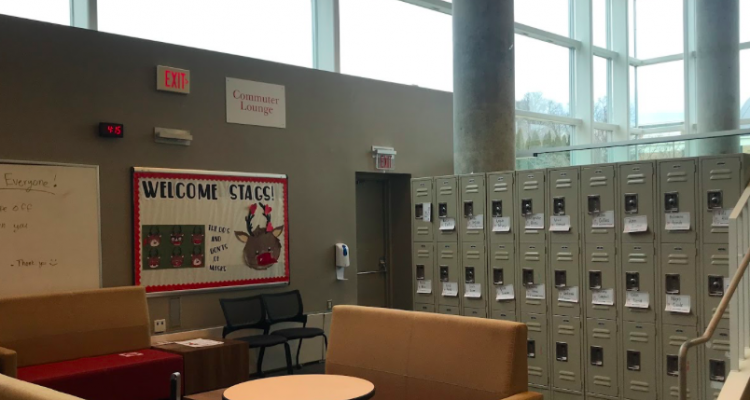The pandemic which sent the country into lockdown now over a year ago left Fairfield University with a great challenge. Plans had to be established to alter the school year to the new normal we would be living through.
Almost a year after the virus began to spread students continue to settle into this new routine until life after COVID-19 becomes a reality.
Although plenty of students on campus have gone through their own experiences, commuter students have experienced unique situations which have gone under the radar for some time now.
Commuting makes more sense now than ever before as new coronavirus cases appear everyday in Connecticut and surrounding states. Physical health was a new factor for students to consider when deciding if they would live on campus this school year.
Sophomore Katherine Samonek, one of this year’s commuter peer assistants, spoke about how COVID has affected this year for many of the 250 or so commuter students. “The biggest thing I noticed is the greater sense of community with each other,” she says, “but not with the campus as a whole.”
Commuters report on campus every week for COVID testing just like all students, faculty and staff do, yet are unable to enter residence halls. This precaution is understandable, but still affects the presence that commuters brought to campus in years past.
Samonek, and her CPA partner Emily Pappas ‘21, have continued hosting events over Zoom for commuters, but have seen a lower turnout than years past. These turnout rates are not just consistent in commuter programs, but also with the general student population on campus as well.
Elise Allum, a first year student who commutes onto campus, describes her experience with the school year so far. “It’s difficult to get us more involved and acclimated,” she says, “especially when you don’t have the day to day life like many others on campus do.”
The circumstances surrounding COVID have brought many issues to light surrounding the commuter experience. The people that represent the commuter population are trying to resolve some of these problems.
The lounge dedicated to the commuters has been stated by many to be too small for the growing population. Especially with restrictions on where commuters can go, the lounge seating and space isn’t big enough for the population, more resources and space will be needed for that area.
Another issue that has persisted even prior to COVID is the cost of the parking passes for commuters. For the past two years, the prices have been raised by $30 from the $120 price in 2018.
With many classes in an online or hybrid format, and COVID restrictions persisting, commuters are coming to campus less frequently than in years past, yet still need a pass. In reaction to these prices, the CPAs and members of FUSA gathered around 1,000 signatures for a petition to lower the price for next year.
Samonek also wishes to see more dialogue between commuters and administration so that many of the potential issues can be resolved before they start. “The current situation is looking bright,” she says, “and dialogue is continuing to happen.”


Leave a Reply